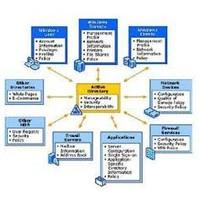The world has been experiencing rapid urbanization over the last few decades, putting a strain on existing city infrastructure such as waste management, water supply management, public transport and electricity consumption. We are also seeing increasing pollution levels in cities threatening the environment, natural resources and health conditions. However, we must realize that the real growth lies in urbanization as it provides many opportunities to individuals for better employment, healthcare and better education. However, it is imperative to limit the ill effects of rapid urbanization through integrated action plans to enable the development of growing cities. This gave rise to the concept of a smart city in which all available information associated with a city will be utilized systematically for better city management. The proposed system architecture is divided in subsystems and is discussed in individual chapters. The first chapter introduces and gives overview to the reader of the complete system architecture. The second chapter discusses the data monitoring system and data lake system based on the oneM2M standards. DMS employs oneM2M as a middleware layer to achieve interoperability, and DLS uses a multi-tenant architecture with multiple logical databases, enabling efficient and reliable data management. The third chapter discusses energy monitoring and electric vehicle charging systems developed to illustrate the applicability of the oneM2M standards. The fourth chapter discusses the Data Exchange System based on the Indian Urban Data Exchange framework. DES uses IUDX standard data schema and open APIs to avoid data silos and enable secure data sharing. The fifth chapter discusses the 5D-IoT framework that provides uniform data quality assessment of sensor data with meaningful data descriptions.
翻译:暂无翻译



